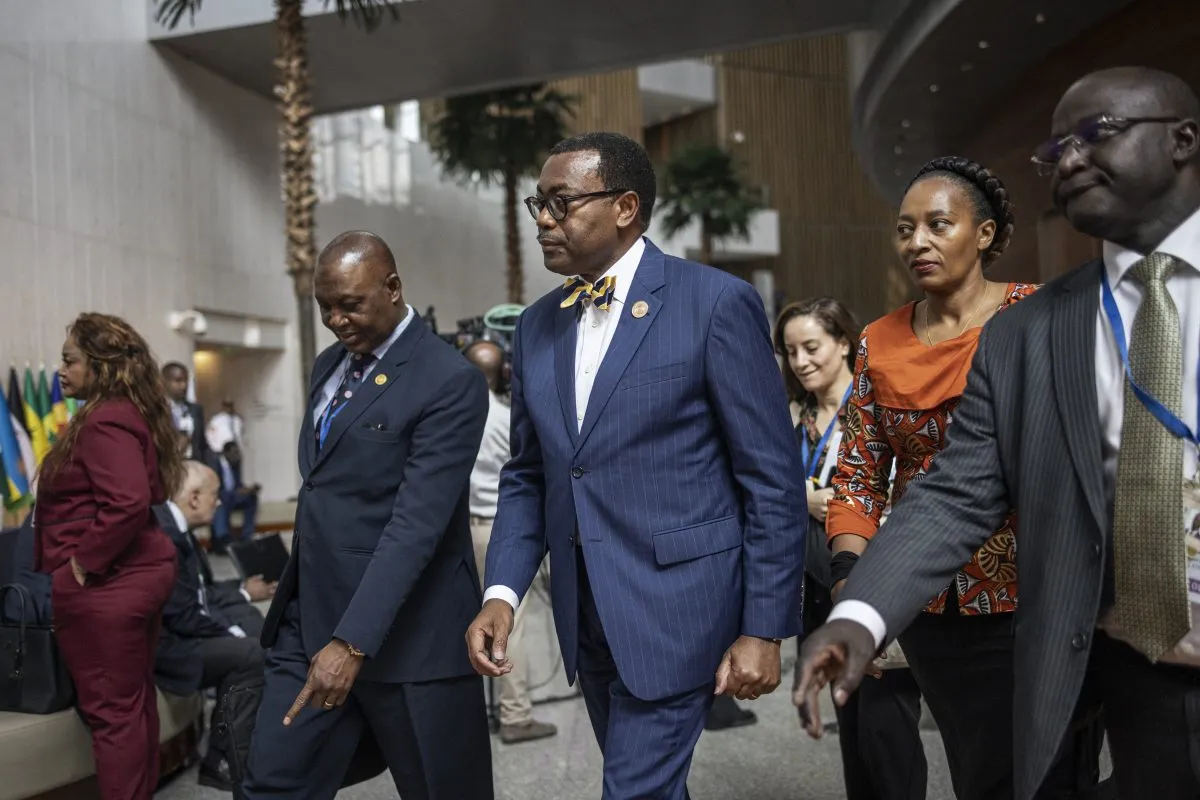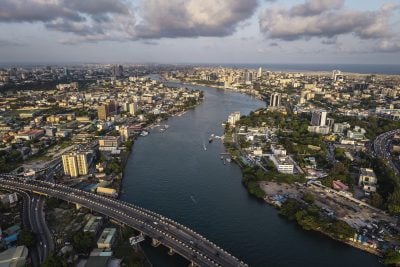Early next year the board of governors at the African Development Bank (AfDB) will elect the bank’s next president, as the incumbent Akinwumi Adesina comes to the end of his second term in office. While Adesina’s would-be successors will not be able to submit their applications until September, and the vote will take place early in 2025, several candidates are already on manoeuvres in an election which could have significant ramifications for the direction of travel at the AfDB.
Abbas Mahamat Tolli from Chad, former governor of the Bank of Central African States, announced his candidacy in March. The dual French-Algerian citizen Rabah Arezki, a former chief economist of the AfDB is widely believed to be throwing his hat into the ring. Senegal’s Hassatou Diop N’Sele, the bank’s current vice-president of finance, is also seen as another potential successor to Adesina.
M’khuzo Mwachande, an investment banker in Cape Town, tells African Business that the AfDB has performed strongly under Adesina’s leadership – one big accomplishment being the capital increase.
“The AfDB is in a strong financial position and has successfully maintained a ‘AAA’ credit rating”, the highest level of creditworthiness possible, Mwachande notes.
While the AfDB has indeed demonstrated its strong financial credentials in recent years – in January this year, for example, the bank issued a $2bn sustainable bond which was given a AAA rating by all the world’s major credit agencies, the leadership will face a number of challenges given the current global context.
Non-regional influence
There is also the issue of non-regional shareholders. The previous US administration through their Trade Secretary and also through the former World Bank President were critical of the institution by arguing that the AfDB had pushed “large amounts of money into Nigeria, South Africa, and others without the strongest programme to sustain it and push it forward”. This is firmly denied by the bank whose largest recipient countries are North African (primarily Morocco and Egypt), and with West Africa and East Africa equally represented in terms of its loan book (at 28% each). These accusations prompted a furious reaction from the AfDB, which said the statement “impugns the integrity of the African Development Bank, undermines our governance systems, and it incorrectly insinuates that we operate under different standards from the World Bank”.
Mwachande believes that criticisms of the AfDB’s due diligence procedures “are difficult to substantiate or justify ”. For example, disbursements at the bank, like in most development finance institutions, need to pass a vetting process based on a number of variables including the viability of the project. There are also thresholds in terms of lending a country can receive.
Anthony Blinken, the current American Secretary of State was recently in Abidjan – headquarters of the bank – where he praised the organisation and the current leadership.
Mwachande also points out that “to obtain an AAA rating from Fitch Ratings, and other global agencies, involves a very rigorous process. Not only does it take into consideration the financial performance of the bank, but also its risk management and governance structures.”
This whole episode however does raise the question of the influence non-regional shareholders have over the bank and in selecting its next president. Many called this a US vendetta against an African institution and as a result, many African leaders, in private at least, want the influence of the non-regionals to be diminished further. Until then, the prospective candidates will have the non-regional members as a key constituency they will have to convince to get the nomination.
Debate will heat up
Alex Vines, director of the Africa programme at the Chatham House think-tank in London, notes that “while the current AfDB president is currently busy undertaking a valedictory global tour, highlighting his successes and outlining his vision for Africa, management reform is high on the agenda – and as we get closer to September the debate about reforming the institution will heat up.”
Indeed, Tolli said in a recent interview that one of his priorities as president would be to establish a governance structure that is transparent and accountable at all levels. While the other candidates have yet to address this issue of transparency and ethics head-on, Arezki has written approvingly of the election of Bassirou Diomaye Faye in Senegal, stressing Faye’s pledges to fight corruption in the West African country.
The AfDB has also been criticised by some French-speaking African countries in the past for, in their eyes, focusing too heavily on Anglophone Africa. This is also disputed by the bank who point that most of the staff in the bank are francophone and that disbursements, especially as a proportion of shareholding, actually favour non-anglophone countries.
“Although the competition really only kicks off in September, it is noticeable that three individuals who have already signalled an interest in the post – Abbas Mahamat Tolli of Chad, Rabah Arezki of Algeria, and Hassatou Diop N’Sele of Senegal – are all non-Anglophones,” Vines says.
Tolli has been quick to emphasise his francophone background, pointing out that “the AfDB has never been led by a president from central Africa” and that a president from the region would “be an important part of ensuring that [the bank] is sufficiently representative at the heart of the institution”.
The challenge ahead
Whoever wins next year’s election will face a big in-tray. With many African countries still struggling under the burden of mounting debt, depreciating currencies, high inflation, and sluggish rates of global growth, the role of the AfDB in contributing to sustainable economic development is even more important. The current President has been lobbying hard to have the Special Drawing Rights of the IMF channelled to the AfDB to increase the continent’s fire power to accelerate development in light of recent external shocks. Mwachande notes that the next president will need to project a strong vision to assure both internal and external stakeholders that the AfDB is able to meet these challenges.
“Going forward, it will be very important to see how the AfDB board can communicate their vision to shareholders and member states and articulate how they will achieve organisational reform and deal with any weaknesses in internal structures.”
The elections will be hard-fought as the candidates seek to convince the voting board of governors that they are best placed to deliver the change that many believe is necessary. “These elections are significant as the AfDB is a key African economic development institution,” Vines says.
“Its success is important for supporting and encouraging continental economic growth domestically and attracting meaningful foreign direct investment.”
(This article has been updated and edited)
Want to continue reading? Subscribe today.
You've read all your free articles for this month! Subscribe now to enjoy full access to our content.
Digital Monthly
£8.00 / month
Receive full unlimited access to our articles, opinions, podcasts and more.
Digital Yearly
£70.00 / year
Our best value offer - save £26 and gain access to all of our digital content for an entire year!

 Sign in with Google
Sign in with Google 



